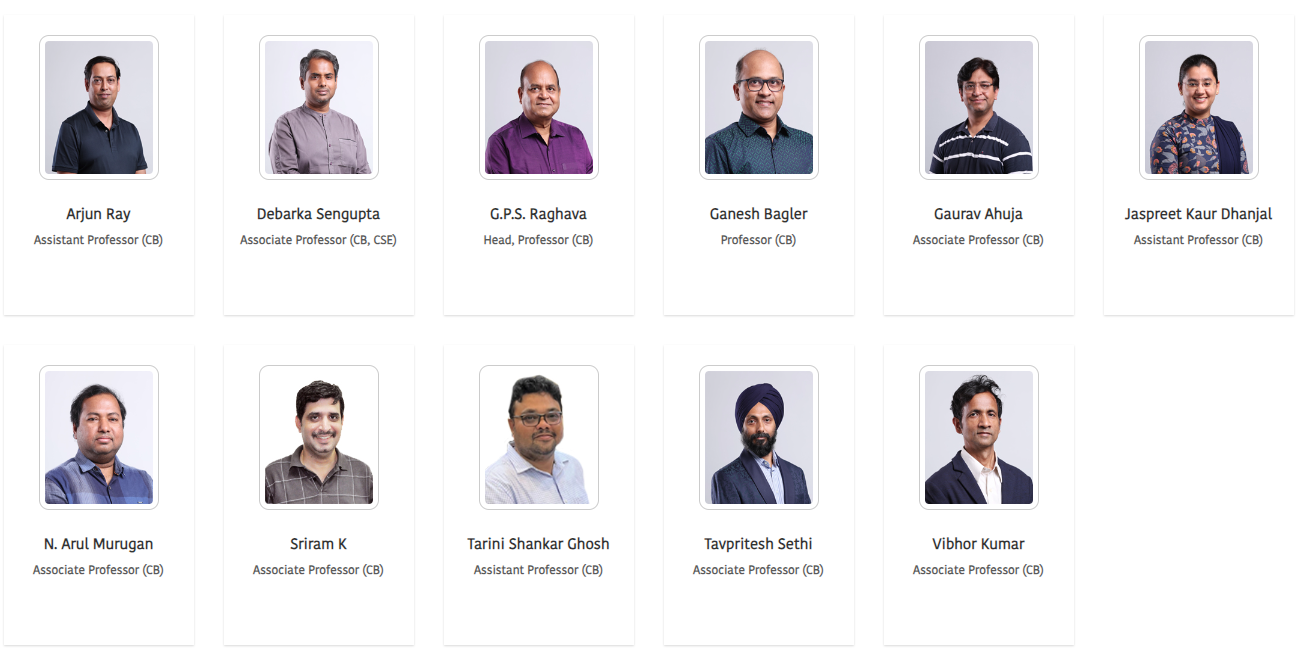Overview
The genomic revolution in biology enables one to answer many questions in medical sciences like personalized medicine, the etiology of diseases like cancer, HIV, etc. However, the answers to these questions are impossible without a support of powerful computational and statistical tools that helps to understand and uncover the underlying network design principles responsible for these diseases. With the advent of new biotechnological techniques massive amounts of genomics data are generated at a rapid pace from the experiments and the analysis of these data requires tremendous amount of domain knowledge, solid computational background and strong programming skills. The entry cost of this highly interdisciplinary field consists of a good amount of understanding of molecular biology, genomics, algorithms, programming, statistical computation, machine learning, stochastic processes, and other mathematical techniques that underlie biological design principles. Therefore, it is imperative to stitch biology, statistics, algorithms and mathematical models to analyze and interpret large-scale genomic and biological data. Though the need and potential applications of computational biology and bioinformatics is tremendous in India, currently very few groups have strength and capability in this area. IIIT-Delhi, with its strong focus on research, and already having a good faculty in various CS and EE, is well suited to build a strong theoretical MTech program in Computational Biology.
Program Structure
In the M.Tech CB program, the student will do 32 credits of course work and 16 credits for a Thesis, for a total of 48 credits. The student will have to do a minimum of 20 credits of coursework in Computational Biology. Following are the core and elective subjects for this program. This list will evolve over time.
Core Courses
- Foundations of Modern Biology
- Algorithms in Computational Biology
- Cell Biology and Biochemistry
- Introduction to Mathematical Biology
Elective Courses
- Machine Learning for Biomedical Applications
- Network Biology
- Introduction to Quantitative Biology
- Statistical Computation
- Stochastic Simulation and Systems Biology
- Cheminformatics
- Introduction to Computational Neuroscience
- Systems and Synthetic Biology
- Practical Bioinformatics
- Stochastic Simulations in Systems Biology and Biophysics
- Molecular mechanics and Biological physics
- Network Science
Among the elective course, upto 12 credits can be done from CSE course that are approved by the PG committee. The following is the list of approved CSE elective courses and more may be added over time.
- Data Mining
- Machine Learning
- Modern Algorithm Design
- Computer Graphics
- Image Analysis/Digital Image Processing
- Advanced PRML
- GPU Computing
- Probabilistic Graphical Models
- Mobile Computing
- Foundations of Parallel Programming
- Big Data Analytics
- Statistical Computation
- Graph Theory
- Numerical Solutions for Differential Equations
In electives, at most 4 credits of “Independent Study/ Project” can be taken.
Thesis: Student will be required to do a thesis in Computational Biology – there is no scholarly paper option.
Preparatory Course : An intensive preparatory course is conducted for a month every year, before the onset of the first semester for a new M.Tech. batch of students, which includes the following three components: Biology, Mathematics and Programming and Data Structures.
Research Areas
- Computational systems and theoretical biology
- Stochastic methods in systems biology
- Bioinformatics
- Structural biology
Faculty
The following faculty members are offering courses and guiding thesis and scholarly papers in the area of computational biology.

Career Options after Graduation
With the successful completion of this program, graduates will acquire the necessary knowledge and skill set to be employed in companies that are working in the areas of computational biology. Graduates are well prepared to pursue Ph.D. or advanced level research in renowned research labs in this area.
Last updated: 18-03-2025



